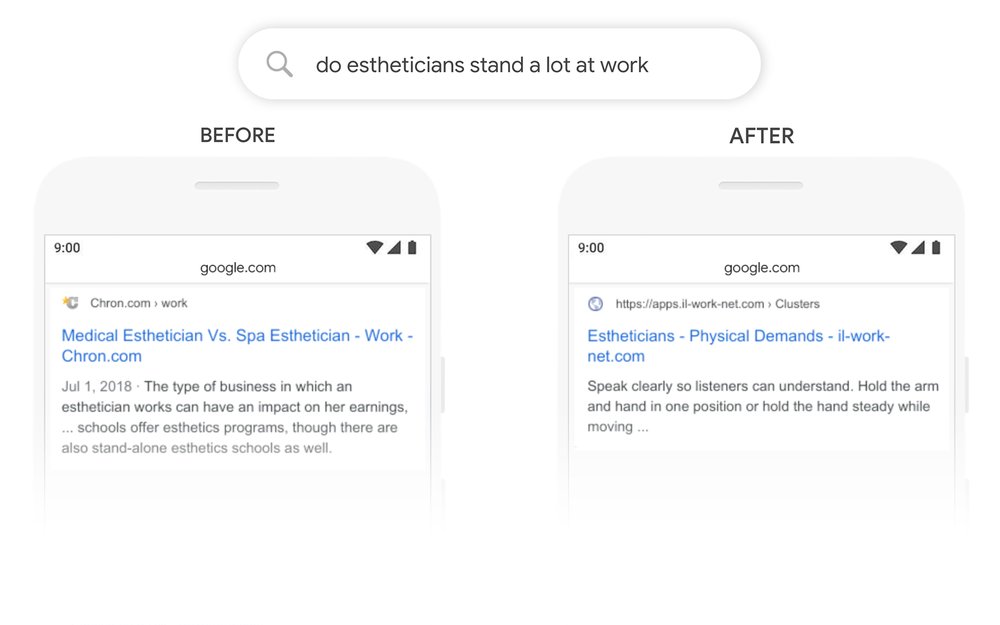What You Need to Know About BERT
Learn more about what Google has called the most important algorithm update in five years.
If you’re reading this post, then you’ve probably heard something about BERT, Google’s latest search update released the week of October 21st. As an SEO team, we recognize that most people don’t find this stuff as interesting as we do, so we’ve created this non-nerd, 2-minute overview of BERT and how it impacts you.
But before we start, we do have to get the nerdsplanation out of our system:
BERT is Google’s neural network-based technique for natural language processing (NLP) pre-training. BERT stands for Bidirectional Encoder Representations from Transformers.
Okay… it felt good to get that out. Start the non-nerd 2 minutes…NOW!
BERT is NOT designed to change how pages rank on Google, but is instead focused on better understanding what a user is searching for. Put simply, this is a “query understanding” update rather than a ranking algorithm update.
A real example of BERT’s impact:

Before BERT, searching “do estheticians stand a lot at work” gave a result about “stand-alone esthetician schools.” Hard to believe it was that bad just a few weeks ago, right? Now, the result for “estheticians - physical demands” is relevant because BERT understands the use of the word “stand” in this context. Head nod to you, BERT.
So basically, the BERT algorithm update represents a significant enhancement in the technology for understanding language in a more human-like manner.
What does this mean for your website rankings and SEO program?
To the Adept SEO team, BERT isn’t a game-changer. The most important SEO strategy at Adept remains the same: figure out exactly what the target audience is searching for, and give them what they want. Thanks to BERT, the work we do every day to execute on this strategy is more likely to be valuable to both our clients and their target customers.
What is an example of a site that IS impacted by BERT?
Large content sites like the New York Times may have seen an impact because they have thousands of pages full of keywords that rank for a lot of random, irrelevant searches. With BERT having a better understanding of the searcher’s intent, there will be fewer bad matches.
For businesses trying to get real engagement from their visitors (transactions or conversions), BERT could improve overall traffic quality.
For a more detailed explanation, you can download our Point Of View here.
And STOP timer. 2 minutes well spent… we hope.

